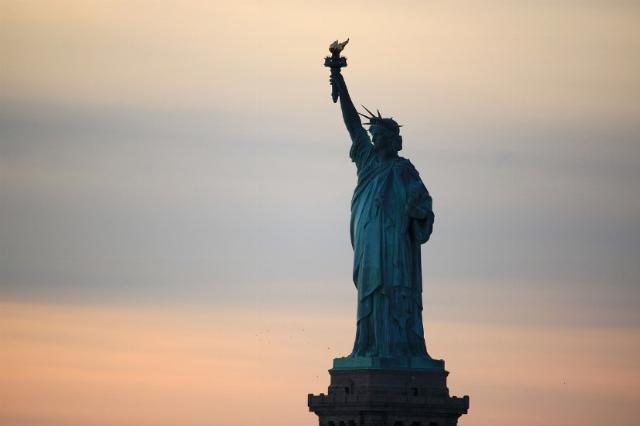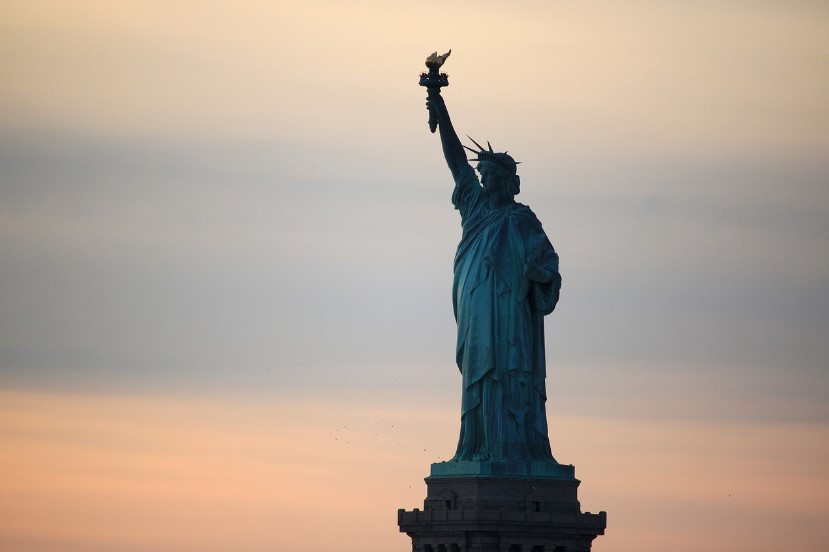

Photo Credit: Image: JSMed via Pixabay, Pixabay License.
JSMed
The first step is to know what they are, because you can't love what you don't know.Ayn Rand once said that in a totalitarian society like Soviet Russia, one kind of man that didn’t exist was the businessman. I would add that there also aren’t many liberals. There are, on the other hand, plenty of conservatives.
We Americans like to think of conservatives as gun-toting, family-oriented religious capitalists, but this label itself is made in the USA — especially when we think “traveling” means going to Cancun for spring break, and we don’t read books from other cultures or eras. In fact, whatever we think about how conservatives should think, the conservatives are the most diverse party in the whole world.
For instance, in Britain, conservatives might believe in aristocracy — a class system. In India, they might believe in the caste system. In Soviet Russia, they might have believed in (and failed at) the abolishment of classes. Each nation has its own flavor and gist of conservative, and you can put them in the same room, and they’ll all disagree wildly — except on one thing, and that’s that they don’t want to act like the other nations.
In addition to this, a real conservative knows that to switch governments like musical chairs, English for American, would be a total disaster for both parties — no matter how smoothly things are going in either of them. A conservative believes in and recognizes ethnicity — that is, a particular kind of people, complete with manners and outlook and traditions — first. He believes that society grows organically over eons and that we grow into society. He’s thus a man of prejudice. And that’s okay. Because to a strong degree, he’s right.
Liberals are built a little different. By “a liberal” I don’t mean that you have green hair and hate borders and think Lizzo is oppressed. That would be our current definition of leftist. By liberal I mean you like hearing about how the Scandis do hospitals and the Saudis do hospitality. In short, you like new ideas from all kinds of places, and even more than this, you like to hear a good argument about them.
John Stuart Mill explained liberalism in the best way possible in On Liberty:
If all mankind minus one, were of one opinion, and only one person were of the contrary opinion, mankind would be no more justified in silencing that one person, than he, if he had the power, would be justified in silencing mankind. …
The peculiar evil of silencing the expression of an opinion is, that it is robbing the human race; posterity as well as the existing generation; those who dissent from the opinion, still more than those who hold it. If the opinion is right, they are deprived of the opportunity of exchanging error for truth: if wrong, they lose, what is almost as great a benefit, the clearer perception and livelier impression of truth, produced by its collision with error.
Liberalism doesn’t mean you think all arguers are equally right. It doesn’t mean you think all ideas are equally safe, or smart, or worthy of respect. It means that you think other people should say them so that we can fight about them, and — who knows? — maybe we can find better ideas. This means that, given the right circumstances, you might trade out your traditional ones.
This requires diversity, on some level, and for the ability of minorities (religious and political and ethnic) to frankly speak their minds. No country has ever done this perfectly (nor would we want it to, as this would require a hamstringing of the majority), but liberals at least give it a good shot. I think they ought to, to some degree. This kind of free dealing with one another, even when it’s offensive, is responsible not just for the best governments (read: The Federalist Papers), but for our best music and movies and poetry and literature. Thus, Sparta had the best armies, but Athens the fruity liberal had the best art.
Spiritually, the liberal and the conservative differ on how open they are to change. They also differ on how offended they are when they hear a new idea. Liberals today are accused of being self-loathing, limp-wristed, fit-throwing vegans — but this is a mischaracterization. A true liberal doesn’t fit well within boxes or narratives, and in fact, he tends to poke holes in them. A liberal is the still, small voice that questions whether Big Pharma is lying to and raping the public. Liberals are pointing out whether the FDA is funded by the people they’re supposed to be policing. A liberal asks — at great personal danger — whether the cop who killed George Floyd (and went to prison for it) was just following what his bosses told him. And a liberal gets angry when Facebook and Twitter won’t let anybody talk about it. We like to call Democrats “liberals,” but I’ve just listed people like Joe Rogan, Elon Musk, Russell Brand, RFK Jr., and Donald Trump — people who are risking their lives to shake up an evil, corrupted system. And if the Republican Party is winning at all, it’s because of these people — the liberals at heart.
This is why there are conservatives in North Korea but no liberals. A spiritual liberal is always looking for truth, and the people in charge are always trying to hide it. Both a slave society and a free society are a game of cat and mouse. But in a slave society, the mouse is the liberal — and he’s almost always eventually caught. In a free society, the mouse is the president. And there we wish the cats luck.
E.B. White has a beautiful passage in his Writings from the New Yorker, which every American should read:
The value of the liberal in the republic is not that he is logical but that he is inquisitive. …
The liberal holds that he is true to the republic when he is true to himself. (It may not be as cozy an attitude as it sounds.) He greets with enthusiasm the fact of the journey, as a dog greets a man’s invitation to take a walk. And he acts in the dog’s way, too, swinging wide, racing ahead, doubling back, covering many miles of territory that the man never traverses, all in the spirit of inquiry and the zest for truth. He leaves a crazy trail, but he ranges far beyond the genteel old party he walks with and he is usually in a better position to discover a skunk. The dog often influences the course the man takes, on his long walk; for sometimes a dog runs into something in nature so arresting that not even a man can quite ignore it, and the man deviates — a clear victim of the liberal intent in his dumb companion. When the two of them get home and flop down, it is the liberal — the wide-ranging dog — who is covered with bur-docks and with information of a special sort on out-of-the-way places. Often ineffective in direct political action, he is the opposite of the professional revolutionary, for, unlike the latter, he never feels he knows where the truth lies, but is full of rich memories of places he has glimpsed it in.
We have been making fun of liberals for too long, mostly because people who aren’t liberals stole the label — which used to be a compliment — and put it on people who didn’t deserve it. I think it’s time to call them out on it.
Jeremy Egerer is the author of Prejudices — a collection of questionable essays on Substack.
<img alt="
Image: JSMed via Pixabay, Pixabay License.
” captext=”JSMed” src=”https://conservativenewsbriefing.com/wp-content/uploads/2024/09/why-i-love-liberals-and-you-should-too.jpg”>
Image: JSMed via Pixabay, Pixabay License.





